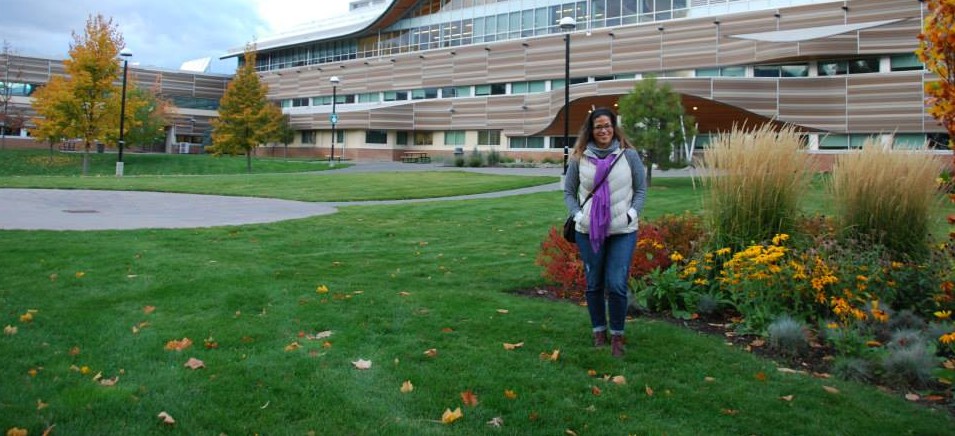In Chapter 6 of Richard Susskind’s book “Tomorrow’s Lawyers”, he discusses the status quo of how law firms have operated historically, and just how risky these traditions may be in the current global economic and social markets.
In working for a medium sized full service law firm this past summer, I absolutely agree with the concerns surrounding the sustainability of the traditional model of law firm operations. Considering costs associated with the practice in addition to the “extras” which the large firms consider to be a part of the basic “necessities”, it is clear that the amount of money being generated and spent goes beyond what can reasonably be sustained in the current economy. These include corporate lunches, dinners and parties. Although my firm is a medium sized firm, the partnership was always keen on ensuring that the lawyers felt appreciated by hosting lunches, dinners, marketing and networking events in addition to an annual retreat.
It would be a lie to say that I was not happy to receive such generosity and appreciation by my superiors and colleagues, however, I have to be honest in admitting that these “extras” are not as “necessary” as we’d like to think they are.
as we’d like to think they are.
When I think about where the money comes from to provide such gifts to the lawyers at the firm, I always end up with one source; the clients. It seems problematic to use funds allocated and paid for legal services towards personal expenses in house. However, this has always been “the way”.
Susskind notes that “lawyers have for many years performed routine work for which they have been overqualified and for which, in turn, they have been overcharging”.
Does the above statement explain why the traditional model has become entrenched in firm culture? I would argue that the compensation received from clients for legal services must cover the special knowledge, understanding and reassurance that a lawyer provides their client. Namely, clients pay to have a lawyer deal with their matter in order for them to feel as relaxed as possible with their predicament. The specialized and privileged access to information granted to lawyers is also a chargeable service in my view. Considering the average law school education amounts to sixty or so thousand dollars excluding undergraduate or postgraduate studies, it seems understandable why young lawyers are eager to join a firm where they will have the potential to grow into a gainful practice that follows the traditional model.
Susskind is correct however in stating that “to survive and thrive I suspect most will need to [make] changes to enable the changes from their current approach to a new, sustainable, longer-term business model.”
Personally, I think the primary issue is that clients are able to access plenty of information online through a variety of platforms, including digital lawyer substitutes. These substitutes offer users an online, self-serve options in drafting routine documents such as leases, powers of attorney, etc. Other sites offer legal advice, etc.
If law firms perceived these substitute services as legitimate threats to their business then change would likely arise. However, law firms, specifically the large global firms, do not recognize the threat and therefor are not motivated to change. Maybe this is the root of the problem?
History tells us however, that giants can be defeated by the “little guy”.


What a great inaugural student post! This is very insightful and certainly fired up my brain cells.
I think you’ll be interested in the first chapter of Mitch Kowalski’s book, Avoiding Extinction. He imagines a scenario where a group of in-house lawyers – CLIENTS – are discussing what frustrates them about the law firms that they purchase services from, and what the ideal legal service provider would look like. Where they see waste and failure to meet client needs is not so much in the luxury extras like meals and entertainment (although I’m sure clients don’t love paying for that), but in not getting value for money in the actual legal advice they pay for. Lawyers charging for too many hours spent on work that could have been done more efficiently. Junior people being trained on the client’s work – so the client is paying for their training. Firms failing to invest in knowledge management and technology that would make their work more efficient. In other words, the scenario Mitch imagines (which is probably based on some real-lfe ones, I think) suggests that the whole basis of mutual trust that clients have to have with their lawyers, that they are paying reasonable compensation for that “special knowledge, understanding and reassurance,” isn’t always there.
One question that follows on from this, for me, is what legal education could be doing better. Your post points out that the high cost of legal education drives those high fees. Does it have to cost that much? Should it? And if junior lawyers still need to be trained (on the client’s dime!) at the end of it, what does that say? Obviously these aren’t the most comfortable questions for me to ask given how I make my living – but we are here to ask uncomfortable questions …
Thanks for an excellent post!
Thank you Professor Sykes!
Great questions not uncomfortable at all! One idea I did have was in relation to what legal education could do to remedy some of the money related issues. This course is a perfect example of the direction in which law schools ought to be headed. For example, imagine if 3L was a practice focused year, where courses offered provided students with the basic skill set to enter the work force. I think that the first two years of theoretical and “thinking like a lawyer” training is sufficient and by the time 3L hits, most students are drained and ready to graduate. Many take classes to simply fill their credit requirements without giving much thought to the substance of the courses. BUT if the courses were included topics such as: “basic litigation” or “correspondence in the legal world”; I think students would not only be eager to engage with the materials, but would feel like their tuition is truly providing them with value.
On my first day during summer articles, I was asked to draft a “notice of application”. My first step was to google what the heck that was 🙂
Nawel,
Nice post! One of the best quotes Richard Susskind has is, “law was not created to provide a living for lawyers.” If you start from that premise, it changes your view on the role of a lawyer in 2015 and what it really means to be a lawyer.
If there is an alternative method, person or technology that can create the same outcome for a client at the same or a more affordable price, is that a good thing or a bad thing for society?
Should lawyers be leading the reformation or obstructing it?
Thank you Mr. Kowalski,
First, your guest lecture was excellent and I truly appreciated the clarity with which you presented your material. I’m enjoying reading your book and will likely be in touch in the future!
Second and in response to the above I would have to say that affordable services are always a good thing! That being said and with respect to my above point on the cost of a legal education, I think that it is difficult for a new graduate (who is likely very much in debt) to understand why they should offer up their services at an affordable cost. It’s like giving away knowledge that you, as a law student, have paid so much money to access. So, if reform is to happen I think that the cost of a legal education ought to decrease so that new graduates can begin their careers without the burden of debt which in turn might motivate new lawyers to be more accepting of less pay for their services ??
A great post Nawel, the story of your experience in a firm setting resonates with me and with many others in the profession I’m sure.
One point of contention, however, is with the concluding statement that ” law firms, specifically the large global firms, do not recognize the threat and therefor are not motivated to change.” While I think this may hold true for some BigLaw firms, you might be surprised by the extent to which others are actively exploring ideas to move away from the traditional legal practice model.
For example, Dentons has recently spearheaded NextLaw Labs (http://www.nextlawlabs.com/): We are a global collaborative innovation platform focused on developing, deploying, and investing in new technologies and processes to transform the practice of law around the world. We are interested in building relationships with a wide swath of companies, people and other stakeholders focused on advancing the legal profession in any part of the world.
Though it remains to be seen how this initiative will play out, it does indicate that some BigLaw firms aren’t content with the traditional status quo and are looking to invest in new and disruptive models.
It also raises the question, do you think it’s better to try to affect change from within (by working with industry incumbents) or from outside the established tradition?
Thank you for your reply Adam,
The link and initiative undertaken by Dentons is a fantastic step in the right direction! I was not aware and would like to thank you for pointing it out 🙂
I agree with you that not all big firms are unwilling to change, my own firm holds monthly practice groups, social and community events, as well as fast facts for our clients, friends and family. These firm programs vary from business focused to family issues and many community outreach events are free of charge. I think all of these initiatives demonstrate a clear shift in the traditional practice model.
However, I could also make the argument that advancing these types of “changes” is also good publicity and exposure for a firm as a “trendsetter” or frankly, ahead of the trend. just a random thought…..
In response to your question, I thought about this exact thing when Mr. Kowalski spoke to our class. I asked myself “how can students affect any change when they are the bottom of the totem pole?”
I think that meaningful change must be a combination of outside forces with inside assistance. Change is always met with resistance but when an insider vouches for the change things may be easier?? I think a reality across professions is that the most senior people are retiring so there is room for the new age thinkers to replace them. The question is, how long will it take for the old school mentality/traditions to retire?